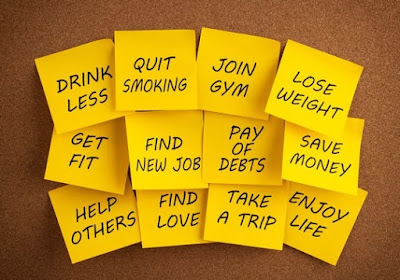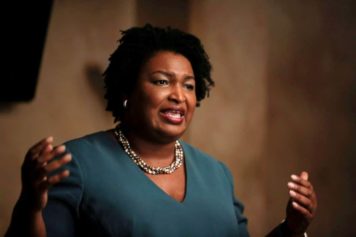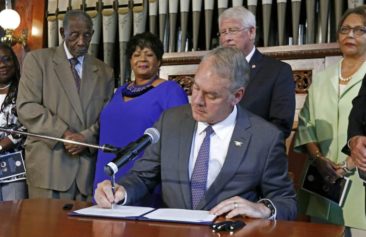It’s that time of year again where we contemplate the lifestyle changes we will make in the new year. Rather than the usual resolutions that everyone makes this time of year, like going on a diet, going to church more often, and giving up certain bad habits, here is a list of resolutions we, as African-Americans, should make going forward into 2016.
- Visit your primary care physician for a physical check up. African-Americans are susceptible to a number of chronic illness and are more likely to discover critical health issues in the later stages when there are fewer options for treatment. As they say, “one ounce of prevention is worth a pound of cure.” It is time we become more vigilant in managing our health care through prevention. There are also free clinics that will provide physicals as well if you are uninsured.
- Commit to saving and building a financial nest egg. Most oftentimes we think about saving for retirement, but for unforeseen expenses like car repairs can potentially drain an already stretched bank account. How much you save depends on your income and expenses. Save weekly or according to your pay schedule. However you decide to save, having a monetary cushion is important, especially considering our community is easily targeted by predatory payday lenders who exorbitant interest rates create further debt. There are plenty of ways to save at least $1,000 in a year. By following just a few simple steps, you can build that nest egg and protect your wallet at the same time.
- Invest in life and property insurance. African-Americans have not been investing in life insurance the way we should in order to protect our families. Life insurance policies vary and there are many inexpensive options available. Do your research and find the one that best suits your family’s needs and budget. We must also invest in property or renters insurance, policies that include flood damage, because as we learned with Katrina in 2005 and the floods in South Carolina this year, our community is more vulnerable to the impact of natural disasters. Most people of color are devastated by these disasters, lose everything, and do not get the necessary assistance needed from FEMA. Protect yourself in the event that you must start over.
- Take a daily “mental health break.” This does not necessarily mean seeking professional help or that of a pastor of other religious leader for counseling. It simply means taking time and space for yourself and your thoughts. Walk away from life’s stresses, social media, and all other distractions each day and either sit alone in quiet solitude, have a cup of coffee, read, listen to soothing music or write in a journal. How long you take is up to you, but taking this brief moment of time for self-awareness and self-reflection makes it easier to deal with life’s daily stress, including racism.
- Create a “bucket list” and work toward it. This list does not need to include anything that is unrealistic or extraordinary. Your list can include things as simple as taking in a Broadway play, visiting a state you have never been to, taking ballroom dance lessons, and purchasing a home. Whatever you put on this list, be sure you also list the steps to get there and cross off each step as you progress toward your goal. At the end of the year, review your accomplishments and create a new list.
- Record and document family histories. This is a wonderful way of connecting with the elders in the family, learning about your family’s past and honoring those we’ve lost. Hearing their stories and writing them down or recording them on a videe or audio is critically important for our youth and future generations. For the most part, African-American families have relied on oral histories, many of which have not been recorded. We need to get into the habit of having documentation, not only so we don’t forget, but also so the world doesn’t forget who we are and what our people have endured as told in their own words.
- Commit to reading at least one book per month. Whether it be fiction, poetry, nonfiction or memoir, it is important that we expand our knowledge through literature. Children who see the adults in their lives read grow to appreciate reading. By encouraging daily reading in our homes, we are helping to close achievement gap. Build or expand your home library this year using reading lists suggested for African-Americans. There are many Black-owned bookstores you can buy culturally relevant children’s literature and find rare biographies and the like for adults. Your local library may also sell books that they have numerous editions of or no longer need for less than a dollar in some cases. Yard sales are also good places to find inexpensive books.
- Support Black-owned businesses. It has been estimated that, collectively, African-American consumers spend over $1 trillion per year, however, very little of that money is recycled in our own community. Forget the negative stereotypes about buying Black and show your support. Not only can you support locally owned Black-businesses, but there are a host of online businesses that are Black-owned as well owned as well if you do not have local access.
- Take advantage of the free courses offered online through major U.S. colleges and universities. While these courses do not necessarily lead to earned college credits, they are a good way of increasing one’s knowledge base and some courses do offer certificates of completion in lieu of credit. Find courses that interest you or can provide you with some type of professional development to take your career to the next level. Massive Open Online Courses (MOOC) is the most well-known source for accessing these courses.
- Attend at least one cultural event in 2016. Plays, museums, the Black Expo are all good examples of cultural events you can attend and enjoy. Your local radio station may have a community calendar of events, as do many free weekly newspapers and libraries. There are often free events like lectures, discussion groups and poetry readings if you are on a tight budget.
- Become an activist. Whether you use social media to spread information, join a protest march, attend rallies, work on some type of campaign or write to your legislators, use your voice to bring attention to the issues that are important to our community. You don’t have to be well-connected to effect change, you just need a strong desire to want to see it happen.
- Volunteer your services, talents and time. Our organizations often need volunteers, not just to assist with disasters or crises, but year-round. Become a mentor, assist at your local food pantry, if you are a nurse or dental technician, some communities offer a day of free screenings and need volunteers. If you need suggestions, VolunteerMatch.com is one resource that specializes in “bringing good people and good causes together.” With over 105,000 participating organizations, you are sure to find one that serves a cause you are passionate about. In the new year, give of yourself and your time. In working to make 2016 your best year yet, you can also help someone else do the same.



